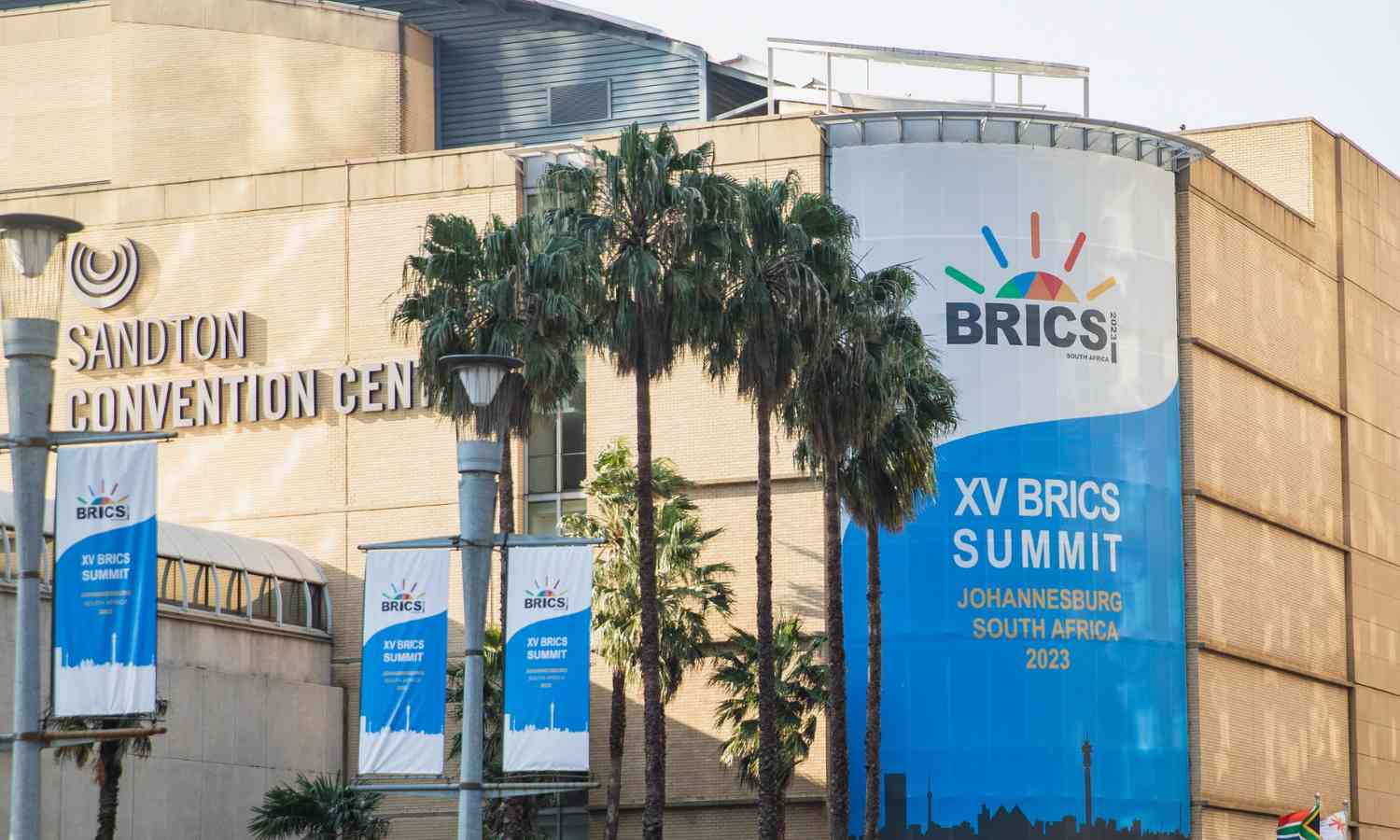The BRICS Summit has now concluded. BRICS is an acronym for the founder member nations of the association: Brazil, Russia, India, China, and South Africa. Also, a representative of five major emerging economies that can have a potential tectonic shift in the world’s balance of power and decision-making.
This was the 15th BRICS Summit in Johannesburg and the central theme was: Supporting the strengthening and expansion of the association so that there is enough clout built to effect a change in the world If these younger emerging powers unite.
These countries have reasons to be a part of the decision-making – They have large populations, expanding economies, and geopolitical advantages that put them into centre-focus far from sitting on the sidelines and waiting for the developed big daddies – US, UK, Germany, Japan, France take decisions for them and the rest of the world thanks to their first-mover advantage.
These decisions could be on a range of issues - economics, trade, security, and development.
1. **Economic Power**: The combined economies of the BRICS countries account for a substantial portion of the world's GDP and population. The addition of newer nations from 1st Jan 2024 - Saudi Arabia, Iran, Ethiopia, Egypt, Argentina, and UAE to the bloc will add to its power and pull.
2. **Geopolitical Influence**: BRICS countries collectively represent a diverse set of regions and cultures, and they seek to promote a multipolar world order. Their cooperation allows them to have a stronger voice in international affairs and challenge the dominance of traditional Western powers. The United Nations Security Council, World Bank, and International Monetary Fund have all been under the strong arm of the US thus far- with BRICS emerging as a power from the other side of the Earth’s face- it is difficult not to sit up and take notice.
3. **Resource Diversity**: The BRICS nations possess vast and varied resources, from raw materials to technology. This resource diversity creates opportunities for economic cooperation and collaboration, as well as for addressing common challenges. Ethiopia is a strange yet notable addition to the alliance and can be seen as China as well as South Africa’s attempt to strengthen the under-representation of Africa on the world map, via the BRICS.
4. **Development and Poverty Alleviation**: Many BRICS countries still face developmental challenges and high levels of poverty. By cooperating and sharing experiences, they can work toward addressing these issues more effectively and promoting inclusive development. Russia and Iran are powerful nations in their right and long-standing allies of India too – but they have been isolated on global fronts by the current powers- that be thanks to Moscow’s Ukrainian stunts and Iran’s unauthorized nuclear forays, human rights abuses, and state-sponsored terrorism allegations. For them to sit on an international decision-influencing body alongside the better diplomatic players like India is a means to realign themselves to world order as they continue their unsanctioned activities back home.
5. **Trade and Investment**: BRICS countries represent large markets and are significant players in international trade and investment. By collaborating, they can potentially negotiate better trade deals, strengthen economic ties, and create new investment opportunities. The entry of oil powers like Saudi Arabia and UAE highlights what the organization is trying to become by bringing in different power poles onto one podium. Little wonder though that even French President Emmanuel Macron wanted to attend the meeting ‘if invited’
6. **Cultural and Diplomatic Exchange**: BRICS promotes cultural exchange and people-to-people diplomacy among member countries. This can foster better understanding and cooperation on various levels, from academia and research to arts and culture.
7. **Counterbalance to Western Influence**: India is on the moon with not just the Chandrayaan-3 but also its fast-developing economy, startup ecosystem, reducing poverty, increasing skill development, emerging manufacturing hubs, strengthening GDP, increasing per capita income and an overall lifestyle upgrade for its population. China is already considered the world’s second most developed nation after the US, as much as per GDP as it is as per its geopolitical clout. The BRICS group provides a counterbalance to the influence of Western powers in global institutions like the United Nations, the World Trade Organization, and the International Monetary Fund. This can lead to more equitable representation and decision-making on the international stage.
8. **Innovation and Technology**: Some BRICS countries are leaders in areas like technology and innovation. By sharing expertise and collaborating on research and development, they can collectively advance in these crucial areas. India is already leading the G20 this year – a major responsibility and huge pressure for a relatively younger power player who has just started catapulting itself to the international spotlight. Thus far with its maturity and planned execution, India seems to be doing right by its observers.
9. **Regional and Global Stability**: As major global players, the stability and cooperation of BRICS countries can have positive ripple effects on regional and global stability. Their collaboration on security and geopolitical issues can contribute to maintaining peace. But this will be a slightly difficult balance to pull off since some of the key member nations namely India, China and Russia are at loggerheads at multiple other global affronts – somehow keeping their growth and voice stifled in front of the more mature developed nations for whom peacekeeping and driving equality and balance in the world is a natural trait now.
10. **Challenges and Solutions**: BRICS countries often face similar challenges, such as infrastructure development, sustainable growth, and climate change. By working together, they can find common solutions and approaches to address these challenges.
But they have challenges within themselves which could pose a risk to the very power they are trying to build as a collective. Their economic and geopolitical goals are often vastly different from each other and there is more focus on self-growth rather than global good – a problem where the big daddies of the West often win thanks to stabler economies and longer-standing reputations of being saviours of the world.
A relatively simple weaning off from the dollar by gradually increasing trade and reserves in other currencies was the first challenge that the bloc was trying to solve and seems to be tottering already with the New Development Bank being on the brink. None of the countries wish to rival their Western allies at this juncture afraid there may be sanctions that may hurt them till BRICS becomes strong enough to counterbalance the after-effects. Brazil in fact openly stated that the bloc is NOT aiming to rival the United States and the Group of Seven developed nations. This flip-flop could keep BRICS aim of becoming a new world order a bit slower but it is up to India and China to decide if they wish to play this together and drive the rest of the cohort faster towards that goal.
© Vygr Media Private Limited 2023. All Rights Reserved.


























